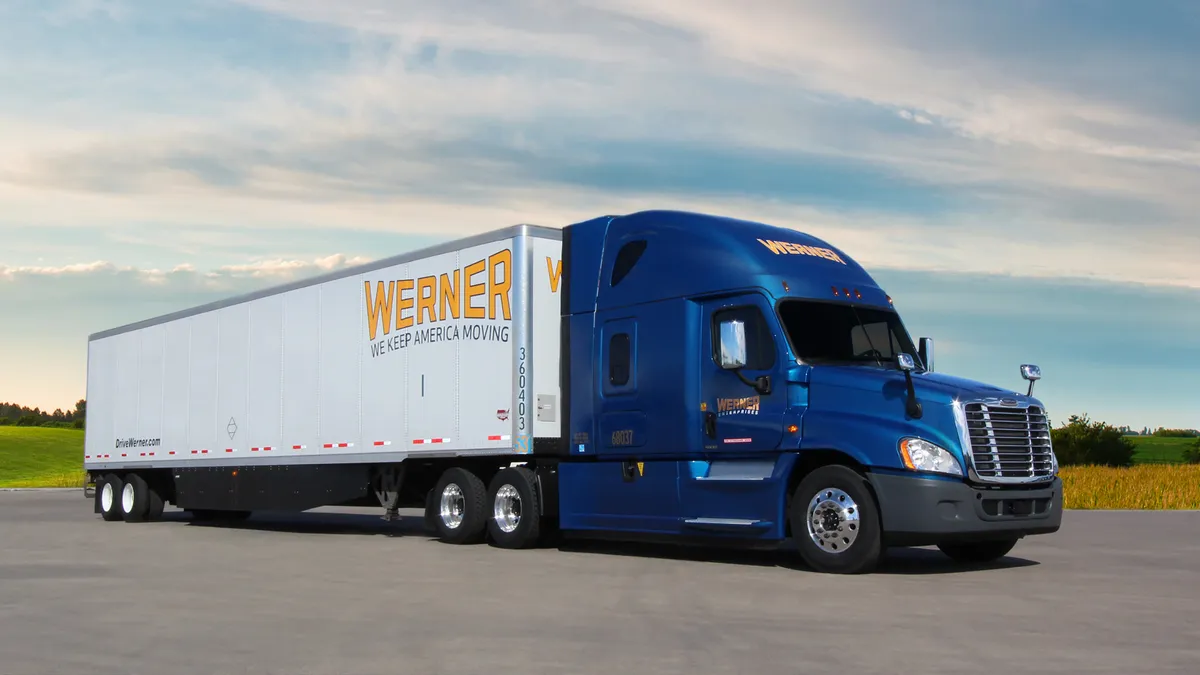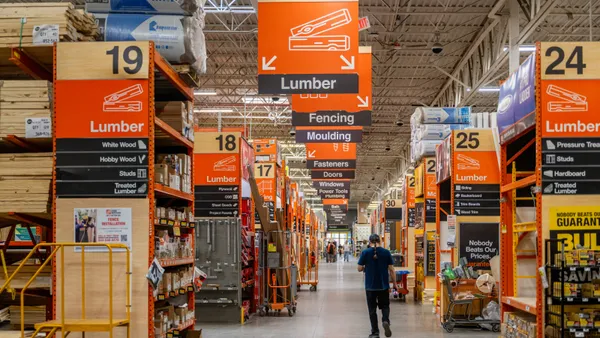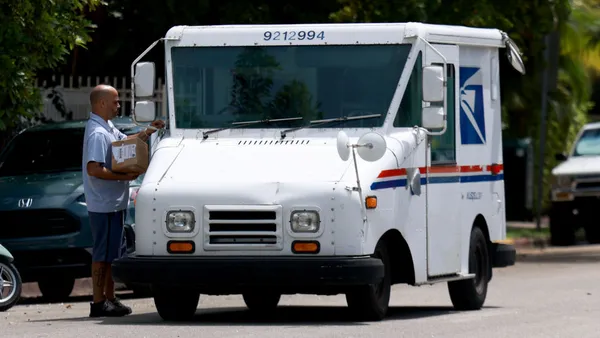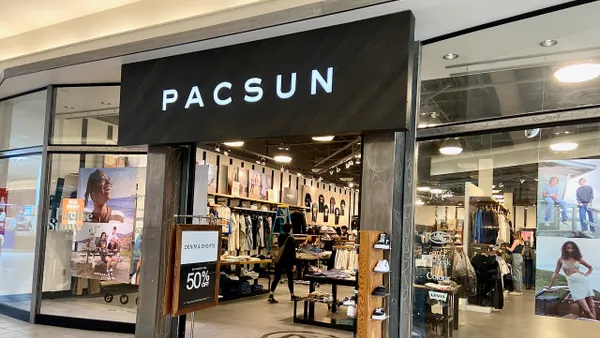Dive Brief:
- Werner is expanding its final mile service to Canada, the company said in a news release Tuesday. It will provide "delivery and related services" to residential and business addresses in every province and territory.
- Werner Final Mile uses the company's proprietary, integrated technology platform, Werner EDGE, to provide white-glove deliveries of big and bulky items. Werner EDGE has developed products for drivers, such as telematics and safety-event management, as well as for shippers, providing them with "real-time carrier integration, updates on delivery day and real-time visibility," according to the company's website.
- The carrier said it uses a liftgate straight truck, which enables customers to ship non-conveyable products, including returns and exchanges. Werner said it specializes in final mile logistics of furniture, appliances, medical and fitness equipment, store fixtures and other heavy goods.
Dive Insight:
Werner's expansion comes as digital sales grow north of the border. Canadian e-commerce sales reached nearly $43 billion in 2018, which made up 9% of total Canadian retail sales, according to a report by Deloitte, and they’re expected to rise another 25% by 2023, reaching $55.4 billion. Although big and bulky delivery is a growing segment of last-mile logistics, expanding the final-mile footprint isn't a winning strategy for everyone. Werner, J.B. Hunt and others have invested; Schneider has divested.
J.B. Hunt acquired big and bulky last-mile provider RDI Last Mile Co. in December, which marked the third similar deal in three years, including Cory 1st Choice Home Delivery and the Special Logistics Dedicated, acquired in 2017. The RDI acquisition bolstered J.B. Hunt's prowess in furniture delivery, John Roberts, president and CEO of J.B. Hunt, said in a statement.
In March, Costco completed the acquisition of Innovel Solutions, a middle- and final-mile delivery and installation carrier, from Sears and Kmart parent company Transform Holdco (TFCO), for $1 billion. Although Costco EVP and CFO Richard Galanti said "there probably is" decreased demand for big-and-bulky items due to the shift in consumer purchasing patterns caused by the pandemic.
FedEx Freight is in the process of expanding its big-and-bulky delivery service, Freight Direct, to 80% of the contiguous United States. "The heavy hard to handle market is one of the fastest-growing segments in e-commerce and it represents roughly $10 billion market opportunity," FedEx COO Raj Subramaniam said in December 2018.
But not every business sees market opportunity. Schneider shut down its First to Final Mile (FTFM) service in 2019 after losing $13 million in the first quarter, $13.4 million in the second quarter and an estimated $9 million in the third quarter. "While we made significant investments in the operation, the business operating results are below target, not meeting our expectation on financial performance, or improving at an acceptable pace or timeline," CEO Mark Rourke said.
Big-and-bulky delivery comes with challenges. "Businesses are under incredible pressure to optimize delivery routes and processes, which can incur additional costs, impacting the bottom line," according to a recent report from SOTI. Financial risk is also involved by way of moving more valuable assets. And more tasks are incumbent upon those making the delivery, especially with white-glove delivery.
Schneider doesn't regret giving up its final-mile service. The carrier said that decision, along with other factors, more than offset a variety of Q1 problems, including rates and impairment charges.
When Werner launched its final-mile service in May 2017, COO Marty Nordlund cited "customers' rapid growth in the E-commerce market" in the company announcement. That trend upheld and likely contributed to Werner's Q1 2020 earnings report, which showed the carrier faired well in Q1 of this year, experiencing limited COVID-19 impact at the time. March panic buying lifted demand for about three weeks, and revenues in the quarter were down only 1% year over year. Revenues for Werner Logistics, of which the final-mile business is a part, were down 4% year over year in Q1.















